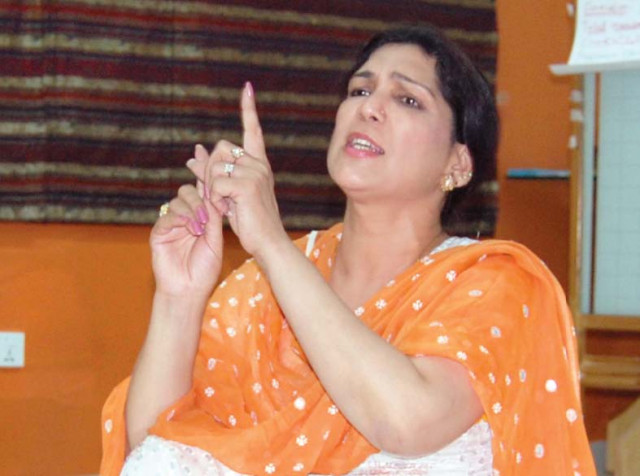
When one thinks of the term ‘gender’, certain roles and behavioural traits are invariably visualised. A man leaves home to look for work and knows how to fix a leaking pipe. A woman, on the other hand, is often an economic burden and is primarily familiar with skills such as roti-making. A man is physically and emotionally strong, and a woman is vulnerable to abuse. Man is an independent creature who gets his way in most matters while a woman is weak and oppressed.
But what if these extreme stereotypes are just the self-fulfilling prophecies of our social conditioning? What if a woman can not only fix a leaking pipe but make it her livelihood. What if the notion of masculinity is the very ruse for man’s exploitation? And what of those who cannot even be typecast into the most basic roles?
The whole idea of dispelling stereotypes perpetuated by society led an organisation, Empowerment through Creative Integration (ECI), to organise a ‘Development Dhaba’-a day of information and interaction between different concerned groups to generate, as Zainab Kapadia of ECI said, “ideas, creative collaboration and fun”. ECI, according to its pamphlet, is a “capacity-building organisation with a mission to create change-makers who promote socio-economic transformation”.
The event along the banks of Korang River at ECI’s training facility saw a number of activities focusing on the theme of gender constructs. ‘Engendered Life Skills’ stalls were set up, a novel idea of teaching participants a number of useful skills such as “sewing a button, changing a car tyre, hammering in a nail, making a roti and fixing a pipe”. Organisations including Struggle for Change, Pakistan Poverty Alleviation Fund, Uks and Amal had set up their information booths, while a theatre workshop had also been arranged. The highlight of the event was a special talk by transgender community leader Almas Bobby.
Programme Manager Sohail Khan Bangash got his hands covered in dough to teach participants how to make the perfectly round roti. Having worked for micro-enterprise for 16 years, he has picked up a host of skills from working along people at tandoors, barber shops, poultry farms etcetera.
“As the famous Chinese saying, ‘You can’t understand until you walk a mile in someone else’s shoes’,” he said.
On the other hand, Shamsia, a Chitrali woman, shared how she overcame challenges to train 17 girls to become plumbers.
“Not only do they earn a living by fixing pipes, they are also happy about not having to rely on men for such chores,” she said.
Madeeha Ansari, while talking to The Express Tribune, said, “Gender is not only biological but also conditional. We can break the mental barriers that influence what each of us feel we can or cannot do.”
Overcoming gender stereotypes can be inspiring, but also tragically eye-opening.
Usman, 10, and Amjad, 17, are friends who live in the slums of Pirwadhai, both having met some misfortune that brought them together. Usman and his family ran from conflict in Bajaur while Amjad left Peshawar after drugs and an immoral company of friends took over his life.
“Around 80 per cent of such kids are victims of abuse but are hesitant in talking about it openly,” said Zaheer Abbas, project manager of Amal, a youth-focused HIV AIDS action group, which reached out to these children.
Amal started a livelihood initiative programme for them and taught them the dangers of HIV. Abbas said according to their research, economic factors play a role in making children become victims of abuse and neglect, but the concept of masculinity contributes as well.
“You see boys even from the middle class run away from home thinking ‘I am a man, I can earn for myself’. Such ideas lead to incidences of sexual violence,” Abbas said.
Putting the event to a close, Almas Bobby shared her experiences and challenges in her struggle for transgender rights. Born in England, she saw her father die when she was ten and her mother when she was 15. Never having found a place for herself in society, she soon became involved in activism, even trying to stand for elections, though her registration papers were rejected.
She led the first transgender protest in the country, but was baffled when members of her own community did not support her, finding it better to lie low.
Now, she continues her struggle for the inclusion of a separate gender on National Identity Cards and the right to inherit property, among other issues.
Showing a dry wit when an audience member asked her whether she feared for her life due to extremists, she pointed at the hypocrisy of current times by saying, “ You don’t see blasts in the Red Light Area, only in mosques and schools.”
Published in The Express Tribune, April 25th, 2011.
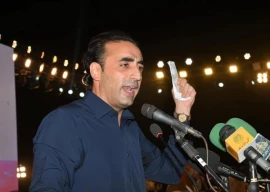







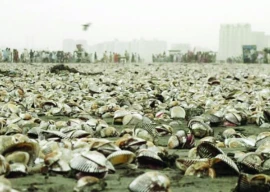

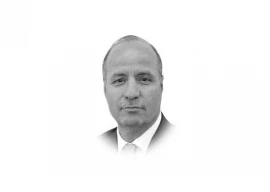
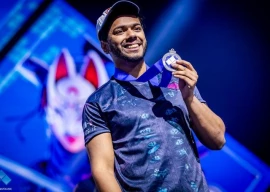
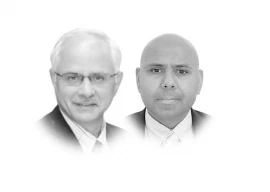





COMMENTS
Comments are moderated and generally will be posted if they are on-topic and not abusive.
For more information, please see our Comments FAQ